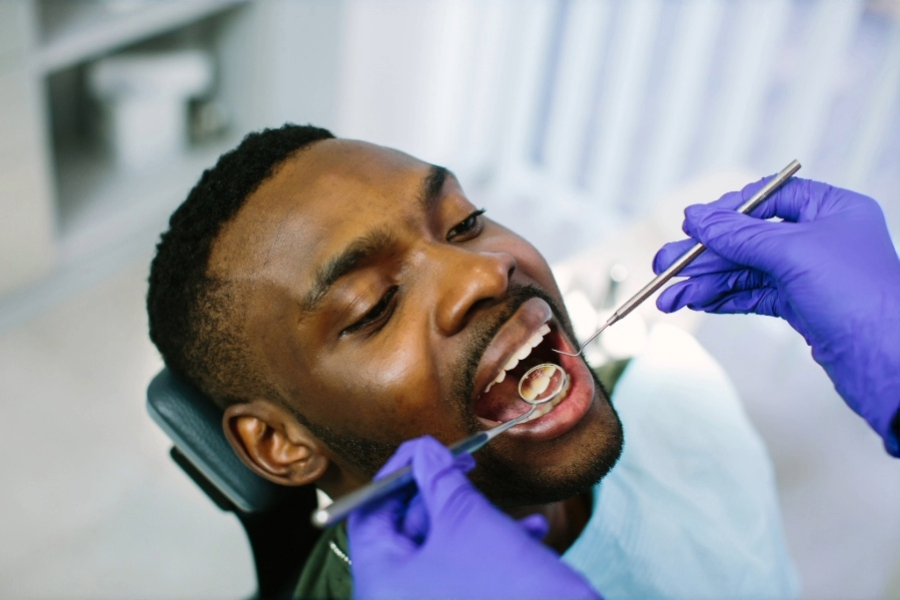What to expect during an oral cancer screening
Posted on April 3, 2025 in Healthy You

Oral cancer, which includes cancers of the mouth, tongue, throat and lips, can affect people of all ages, but the risk increases as you get older (the average age of diagnosis is 641). That's why regular oral cancer screenings are important for maintaining your overall health.
The great news is you don’t have to make a special appointment for an oral cancer screening — your dentist performs it during your routine dental exams twice a year.
What to expect during an oral cancer screening
Oral cancer screenings are quick (usually taking less than 5 minutes) and painless. The screening combines a visual and physical exam.
During the visual exam, your dentist will look for signs of oral cancer inside your mouth. Signs of oral cancer include sores or areas of discoloration (white or red patches).
The second part of the oral cancer screening is the physical exam, where your dentist will feel inside and around your mouth and neck for any lumps or hardened areas.
In some cases, your dentist may use more advanced screening tools, such as a blue dye rinse that can make abnormal cells glow or a special light that shows the difference between healthy and abnormal cells.
What if your screening shows something unusual?
If your dentist notices something abnormal, they may recommend a wait-and-see approach to see if anything changes or refer you for further testing, such as a biopsy, to determine if the cells are cancerous.
Remember, not all abnormal spots are cancer — many are harmless or treatable.
Ways to reduce your oral cancer risk
Although aging is a risk factor for oral cancer, there are lifestyle-related changes that may reduce the odds of developing the disease. Cutting out tobacco, limiting alcohol and using sun protection on your lips can help lower your cancer risk.
You should also keep your twice-yearly dental visits. Not only will these appointments give your mouth a deep clean and protect against common dental health issues, but you’ll receive an oral cancer screening with every visit.
If you’re seeing your dentist every 6 months, you’re more likely to detect oral cancer early, when it’s most treatable. Since oral cancer can develop without obvious symptoms, your dentist can find problems early — sometimes before you notice any changes yourself.
If it’s been a while since you’ve seen the dentist, make an appointment today. Delta Dental of Iowa’s Find a Provider tool makes it easy to find in-network dentists near you, so you can rest assured that you’ll have excellent oral health, no matter your age.
REFERENCE:
1 American Cancer Society